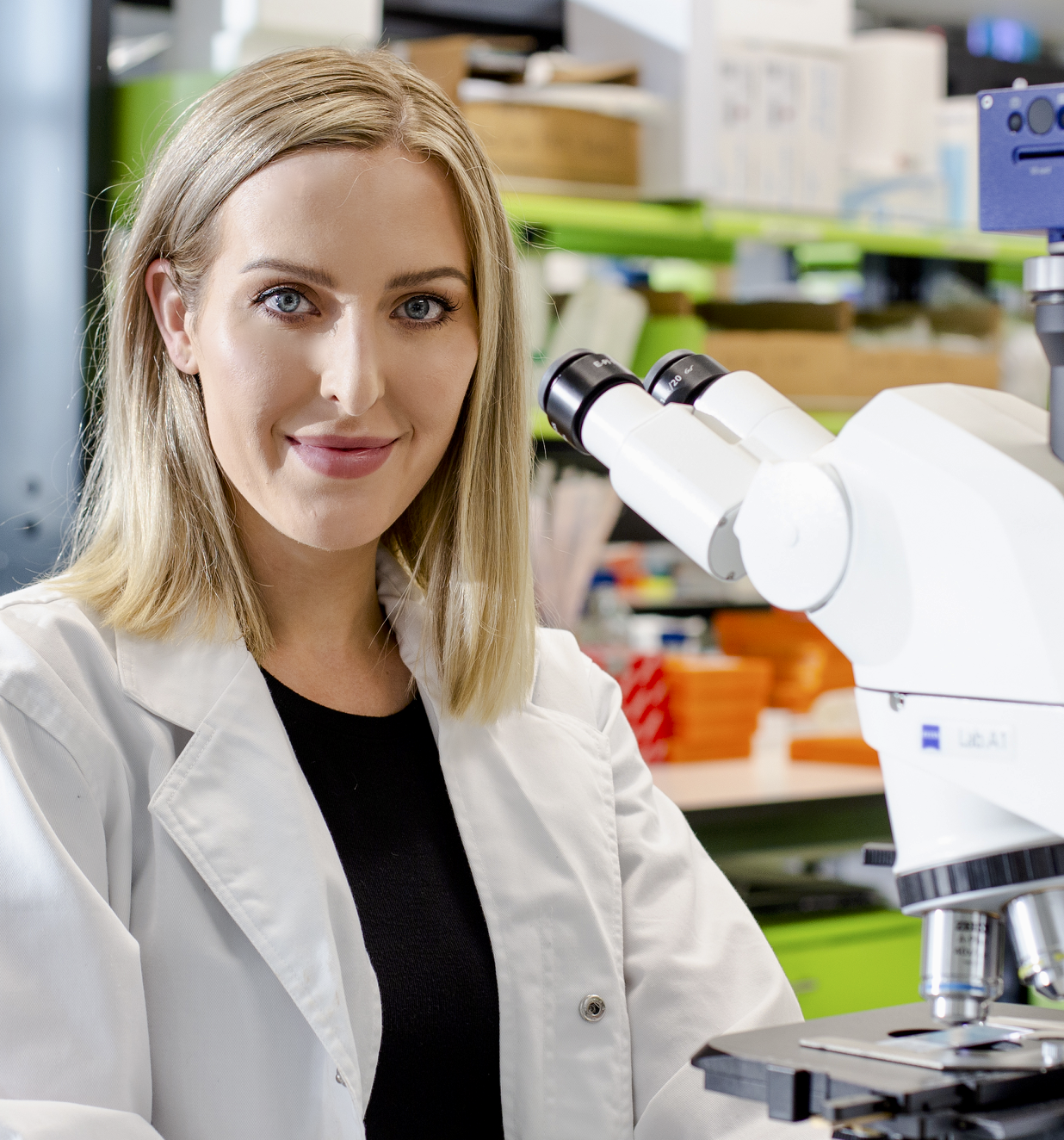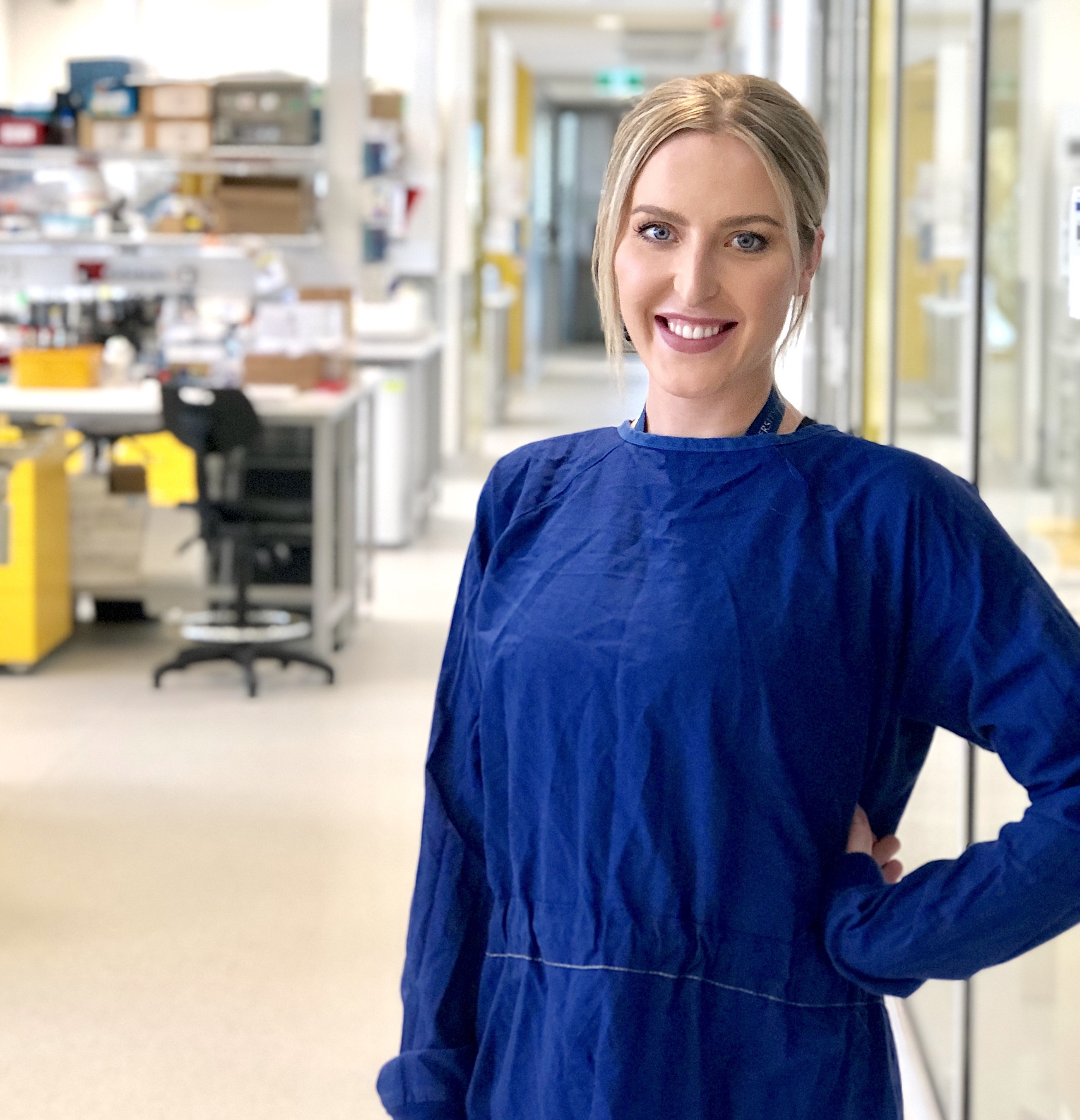Interview with Stroke Researcher Annabel Sorby-Adams
Annabel Sorby-Adams is a final year PhD candidate at the University of Adelaide. Here she discusses her research into stroke.

- What is your PhD research focused on?
Over 17 million people worldwide experience a stroke each year (one person every 2 seconds), two thirds of which will die or be left permanently disabled as a result. My research is accordingly focused on investigating new therapeutic interventions to treat stroke and its complications and improve outcomes for those affected. Specifically, I am researching the development of cerebral oedema and associated rise in intracranial pressure, complications which can arise post stroke, contributing to mortality and poor outcomes. Unfortunately, limited treatment options for these processes currently exist. That’s where my research comes in! I am seeking to evaluate a new treatment to halt these damaging complications and improve stroke outcomes.
- What findings are you looking for and why?
Current treatment options for cerebral oedema and elevated intracranial pressure only treat the symptoms, rather than the underlying cause of these complications. By understanding the mechanisms driving the development of cerebral oedema and resultant rise in intracranial pressure following stroke we can develop more targeted and effective treatments. This is exactly what I have been working on throughout my PhD studies. I have evaluated a new treatment directly targeting the mechanisms leading to the development of post-stroke cerebral oedema. This new treatment, called the NK1 receptor antagonist, aims to prevent the breakdown of a highly regulated barrier (the blood-brain barrier) which exists between the blood and the brain. Under normal conditions the blood-brain barrier is very effective in regulating the movement of water and molecules from the blood into the brain tissue. However, following stroke it becomes leaky, allowing water into the brain and therefore causing the brain to swell. My results have shown that the NK1-R antagonist treatment is effective in maintaining the integrity of the blood-brain barrier and results in markedly reduced cerebral oedema and intracranial pressure changes. Excitingly, this treatment has now advanced to Phase II clinical trials in Australia and the UK, (USA start pending), with the findings from my studies providing key pre-clinical evidence of the drugs’ efficacy.
- What motivated you to pursue this area of research?
In the midst of studying for my first-year exams, I experienced a stroke. Thankfully it was minor, however, at only 19 this experience had a profound impact on me. I was compelled to understand what had happened, to learn more about the human brain and how lives can be changed so drastically when it is damaged. In pursuit of this knowledge my passion for neuroscience was ignited. After a full recovery, I continued my undergraduate degree in Health and Medical Science at the University of Adelaide, majoring in Neuroscience, Pathology and Physiology, ultimately leading me to on my Honours and PhD, with a focus on post-stroke complications and treatment development.
- What do you hope to achieve in your career in the future and why?
I wish to pursue a career as a clinician scientist, with a particular focus on neuroscience, neurology and neurosurgery. I am extremely passionate about furthering my research into stroke and developing new therapies targeting the underlying mechanisms. On completion of my PhD (in November!), I will be venturing to the University of Cambridge to pursue a Post-Doctoral research fellowship with leading researchers in the School of Clinical Medicine, where I will further my stroke research and endeavours. I am extremely fortunate for the incredible experiences and opportunities my PhD has afforded me, and I hope to continue expanding my scientific prospects both internationally and locally to establish myself as an innovative, driven and independent researcher who can effect real change in the stroke research space.
- What has been a highlight for you during your PhD program and why?
One of the major highlights throughout my doctorate has been my work with the Peter Couche Foundation. I was fortunate enough to be introduced to the foundation having received a scholarship to pursue my PhD in 2016, and I remain a proud ambassador of the foundation to this day. The patron, Peter Couche, is an incredible man who suffered a stroke in his early forties. Unfortunately, as a consequence, he has ‘locked-in syndrome’, a condition rendering him completely paralysed, although his brain remains as sharp and active as ever. Despite this, his resolve for finding treatments to better the lives of those affected by stroke is unwavering. I count myself extremely fortunate to have this first-hand relationship with someone who has been affected by stroke, and it has compelled me to further my research to make a tangible difference to the lives of those affected.
- How do you hope your research will help patients with stroke?
Through my research I hope to gain a comprehensive understanding of stroke to guide the development of new treatments and approaches to stroke management. Unfortunately, as we have an ageing population here in Australia, the number of individuals suffering from stroke is predicted to rise in the next 30 years. Developing new therapies for stroke and its complications has the potential to be impactful for both current and future generations, and I hope my research will improve the lives and outcomes for those affected in years to come. In the short-term, I hope the NK1-R clinical trials will reveal favourable results so that the treatment can be approved for use in the treatment of cerebral oedema and elevated intracranial pressure following stroke.
- What motivates you to get up every day and continue your research?
The ability to make a meaningful difference! I believe I am in a privileged position to make change for the future and I am committed and highly motivated to continue my research pursuits to better the lives of individuals suffering from stroke. Also, with my thesis submission in sight, it is a major push to complete the body of work I have been working towards for the past 5 years, enabling me to move to the next phase of my career by becoming more independent and gaining experience with different research teams in Australia and overseas. I am also extremely fortunate to have an extremely supportive network of people around me, including my supervisors (A/Prof Renée Turner, Dr Anna Leonard, Dr Claire Jones), and the most incredible best friends (Jess and Bianca) who keep me sane during the challenging times!





